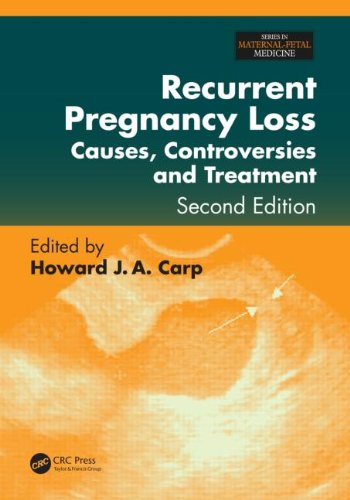

Most ebook files are in PDF format, so you can easily read them using various software such as Foxit Reader or directly on the Google Chrome browser.
Some ebook files are released by publishers in other formats such as .awz, .mobi, .epub, .fb2, etc. You may need to install specific software to read these formats on mobile/PC, such as Calibre.
Please read the tutorial at this link: https://ebookbell.com/faq
We offer FREE conversion to the popular formats you request; however, this may take some time. Therefore, right after payment, please email us, and we will try to provide the service as quickly as possible.
For some exceptional file formats or broken links (if any), please refrain from opening any disputes. Instead, email us first, and we will try to assist within a maximum of 6 hours.
EbookBell Team

4.3
28 reviewsRecurrent pregnancy loss presents a vexing clinical problem primarily for medical professionals treating patients in reproductive medicine and in maternal-fetal medicine. However, with its numerous causes and various suggested treatment options, the problem is more multidisciplinary in nature, involving gynecology, genetics, endocrinology, immunology, pediatrics, and internal medicine. Exploring basic science and clinical applications, the second edition of the bestselling text Recurrent Pregnancy Loss: Causes, Controversies, and Treatment provides an authoritative and comprehensive update on advances in the understanding and management of this troubling phenomenon.
The book covers basic scientific topics such as genetics and cytokines and profiles major advances in immunology, endocrinology, and thrombotic mechanism. It discusses the methodology of clinical research and the application of evidence-based medicine to clinical practice. It also reviews various late obstetric complications, along with issues caused by extreme prematurity and possible resulting handicaps. This second edition presents new material on the latest controversies, featuring opinions from both sides of ongoing debates. It includes new chapters on autoimmunity, third party reproduction, the use of immunostimulants such as CSF, and Chinese medicine.
Designed for specialists working in reproductive medicine clinics and those involved with maternal-fetal care, the book is also ideal for generalists and gynaecologists seeking a comprehensive view of developments in the field.